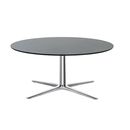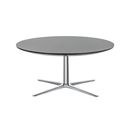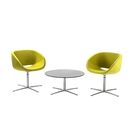Tables
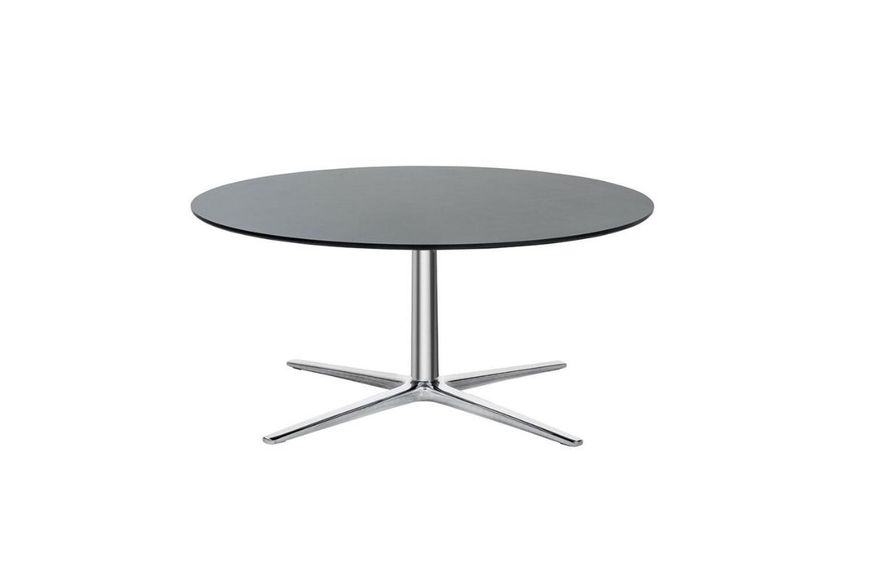
LIMUN Coffeetable
Downloads
- LIMUN_Productinformation
(509 KB) - 2175_LIMUN_Coffeetable.dwg
(1 MB)
Frame 2175
Die-cast aluminium frame polished as standard, optionally powder-coated with black matt structure. 4-arm base with conical cantilevers running from 35 mm to 22 mm. Support column fixed to the base Ø 50 mm at the bottom and Ø 40 mm at the top with a round support bracket screwed to the table top. Optionally, the pedestal can be rotated.
Table tops
Table top C: 30 mm thick, multi-layer particle board, E1, coated in high pressure laminate (HPL) or veneer according to BRUNE ® collection. Plate bottom side HPL white or beech veneer. ABS edging in connection with laminated top or veneer edging in combination with veneered table top. Corners rounded R65
Table top R: 30 mm thick, 28 mm strong multi-layered plywood, surface coated in high-pressure laminate (HPL) or veneer according to BRUNE ® collection. Lower surface: HPL white or beech veneer. Edges multi-layered plywood, straight edges, 9 mm thick, beveled over 45 mm. Corners rounded R65
Solid core Resopal: 10 mm thick top, solid HPL anthracite, table edge bevelled at 45° at the bottom.
Veneer fisnish (Table top C and R)
Real wood veneer from the BRUNE ® collection comes as a standard varnished with a low solvent content water-based lacquer, optionally stained to the BRUNE® collection.
HPL surfaces (Table top C and R)
Resopal®-HPL from the BRUNE® collection.
Dimensions and weight - Model 2175
Table height for tops C and R: 40 mm, table height for solid Resopal top: 38 mm.
| Table size | Weight | |
| Ø 80 cm | 14,5 kg |
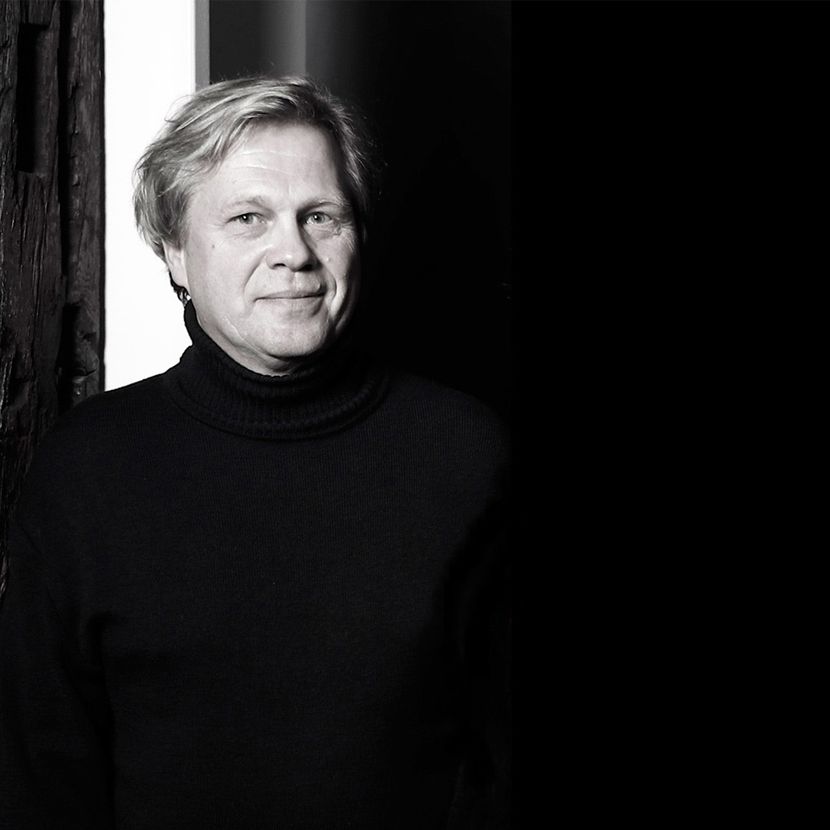
Andreas Ostwald
Andreas Ostwald (born 1964) finished an education as state-certified ceramic designer in the Porcelain Factory Friesland (German: Porzellanfabrik Friesland) in Kiel.
There he fell in love with the white gold. During the prototype production of porcelain production, you learn the mastery of three-dimensional curving and the spherical area arch within only tenths of millimeters by manual labor.
After his studies, he worked as designer for several offices and companies.
He taught the method of design process for ten years at the Muthesius College in Kiel before he went to HFK Bremen in 2006 and taught integrated design there until 2013.
In product design, his interests not only lie in the development of seating furniture but also in the design of lamps for national and international manufacturers.
He was a member of the shaping council (German: Rat für Formgebung) and was a member of many expert panels. His works received a lot of renowned awards.
Andreas Ostwald lives in Harvestehude with his wife and his three daughters.
 Seating
Seating Tables
Tables Wardrobes
Wardrobes Transportation
Transportation Refurbishment
Refurbishment Projects
Projects Textile
Textile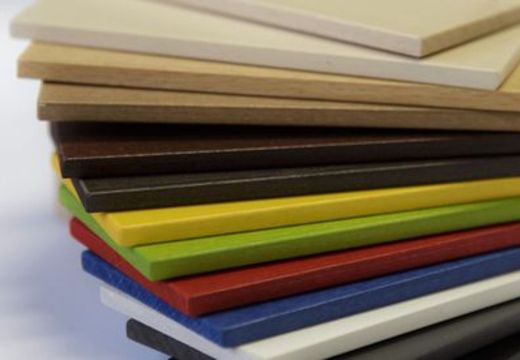 Staining & Lacquer Colours
Staining & Lacquer Colours CPL + plastic shell
CPL + plastic shell Table top finish
Table top finish